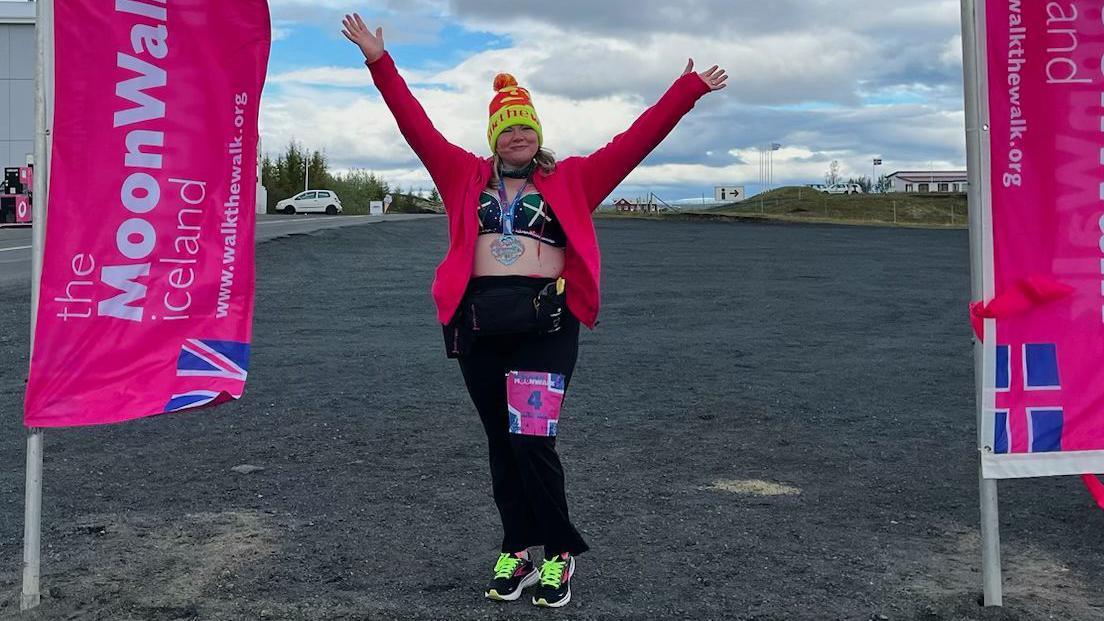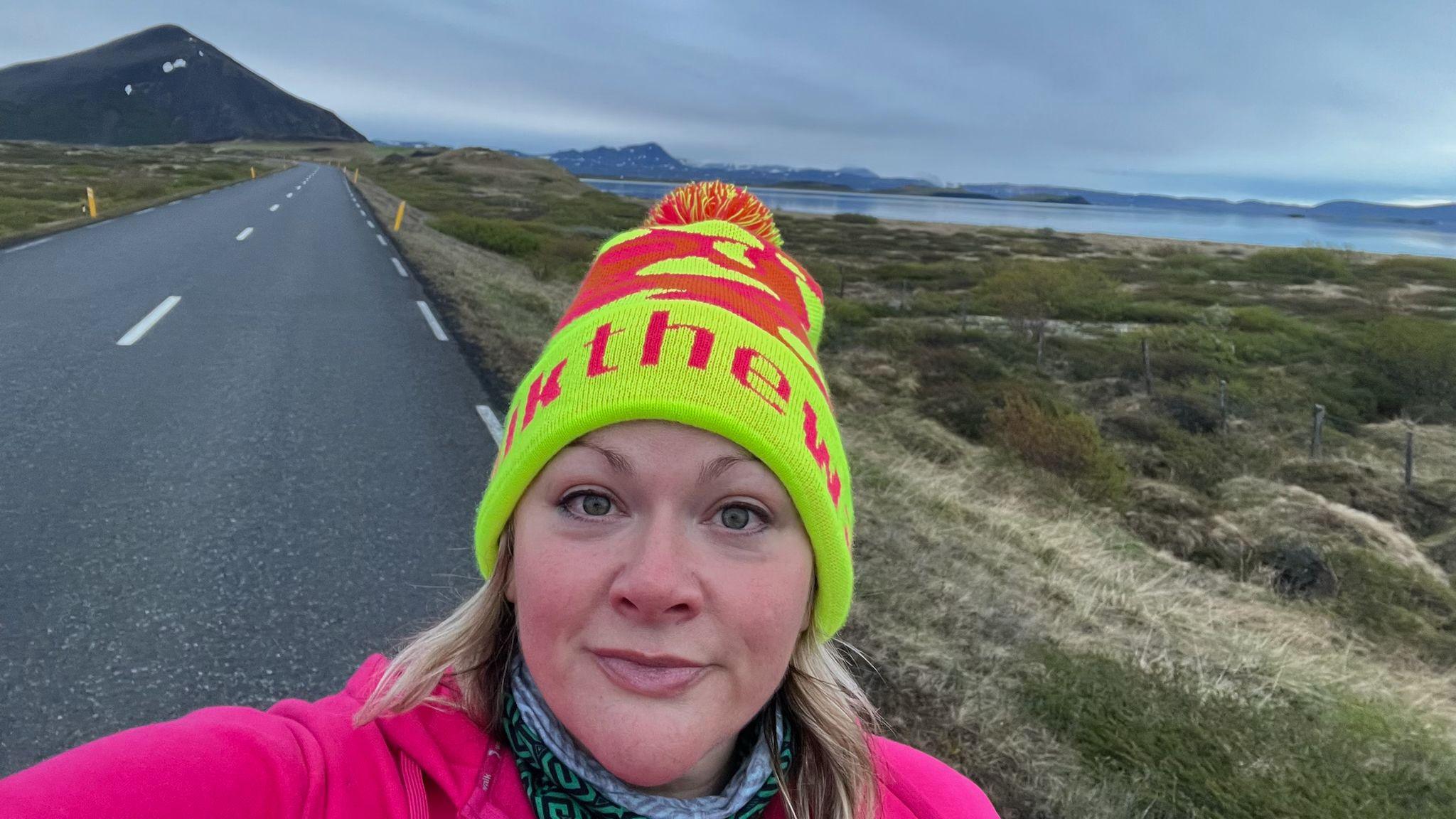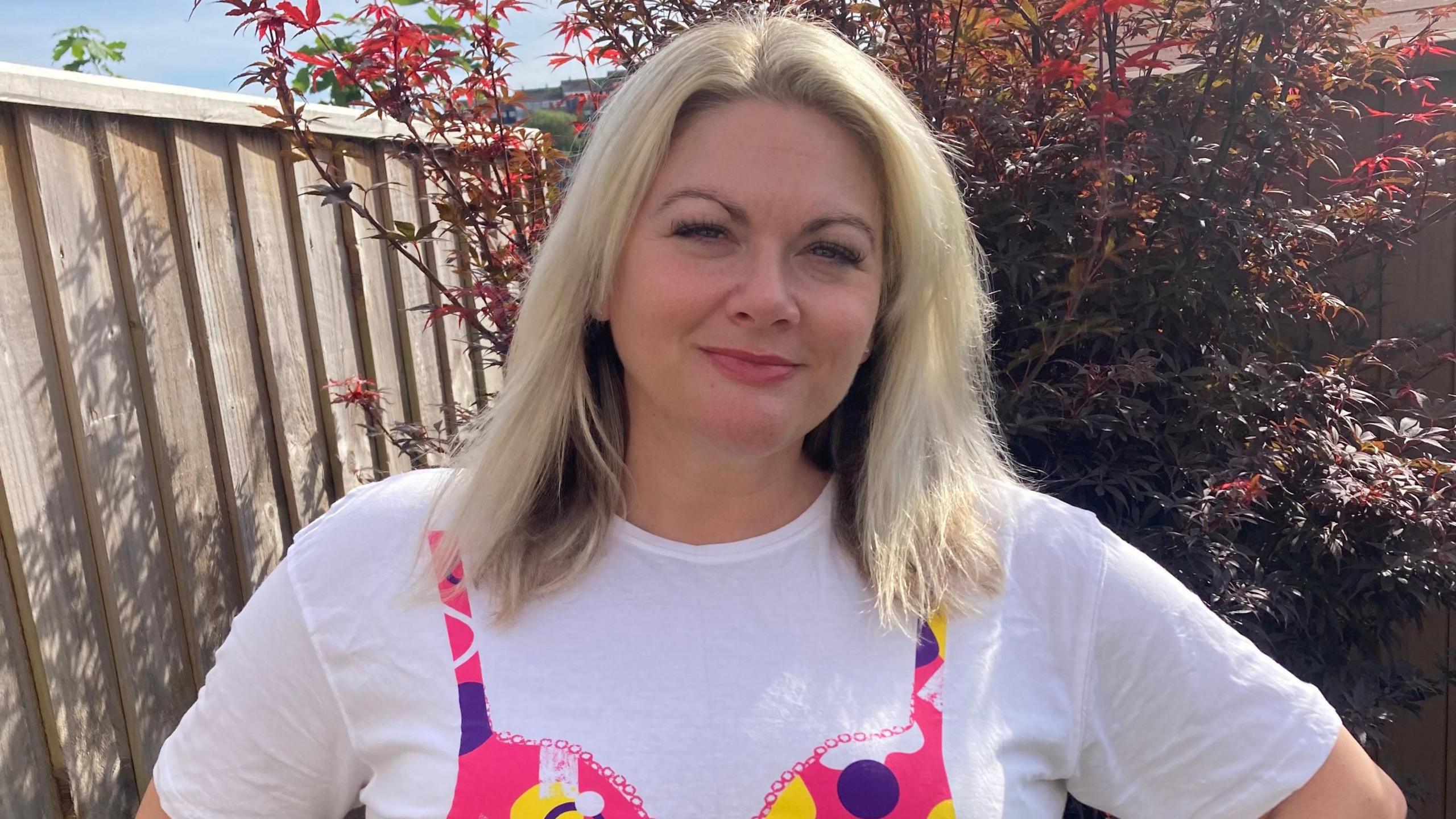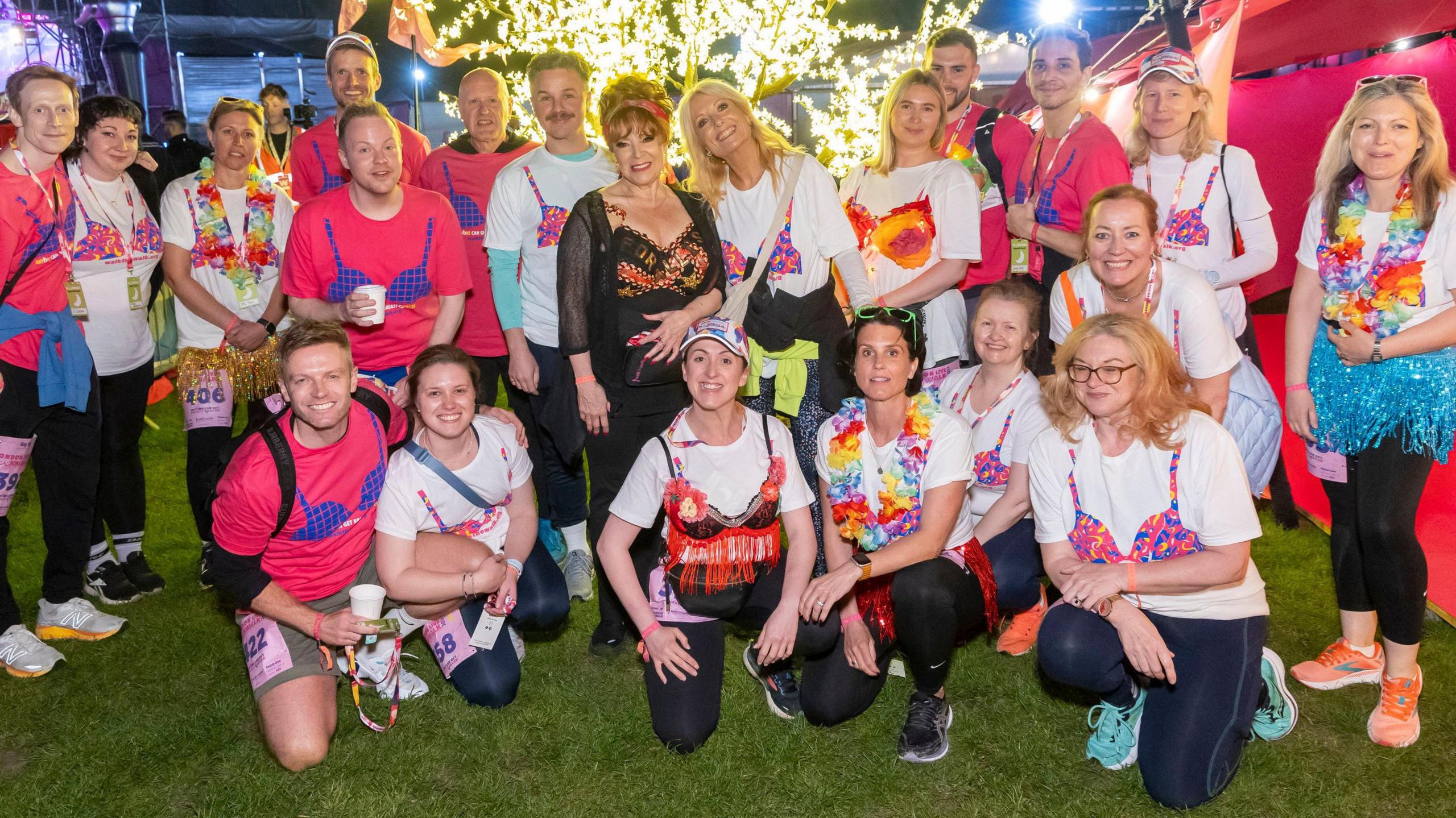Woman completes nine-hour charity walk in Iceland

Ms Bennett said she felt "really proud" that she had finished her first marathon event
- Published
A woman from Plymouth has completed a marathon walk in Iceland to raise money for a breast cancer charity.
Comedian Suzy Bennett decided to take part in the 26 mile (42km) Full Moon MoonWalk after her mum was diagnosed with breast cancer.
The overnight charity event, organised by Walk the Walk, began at 23:00 BST and took Suzy nine hours to complete, battling strong winds along the way.
Ms Bennett said she felt "really proud" that she had finished her first marathon event.
'Walking in a bra'
She said: "Thankfully, my mum's had the all clear now but I video-called her as I came over the finish line, she had a little bit of a cry and I had a bit of cry too.
"I just felt really proud because I've never done anything this big before, and I'm just really proud that I finished it.
"I exceeded my expectations of how much money I've raised, people have been really kind and generous."
Ms Bennett raised over £1,600 for Walk the Walk by completing the walk across the Icelandic landscape in her bra, a key feature of the charity event.
"That's the brand, you know, walking in a bra, and the more decorated the better," she said.
"I had to represent Devon, of course, so I've got sparkly Devon flags in a heart shape which was made by a local lady.
"Representing Iceland as well I've got the red, white, and blue stripes and some sequins on the back."

Ms Bennett said completing the marathon was "not just about raising money" but also about raising awareness
Ms Bennett said completing the marathon was "not just about raising money" but also about raising awareness of breast cancer symptoms.
"My mum's breast cancer was caught on a mammogram, just a routine screening" she said.
"She didn't have any symptoms, so I think the one thing she told me to tell people is, go and get screened, because it's very common, and it can be easily treated."
Follow BBC Devon on X (formerly Twitter), external, Facebook, external and Instagram, external. Send your story ideas to spotlight@bbc.co.uk, external.
Related topics
- Published22 June 2024

- Published19 May 2024
